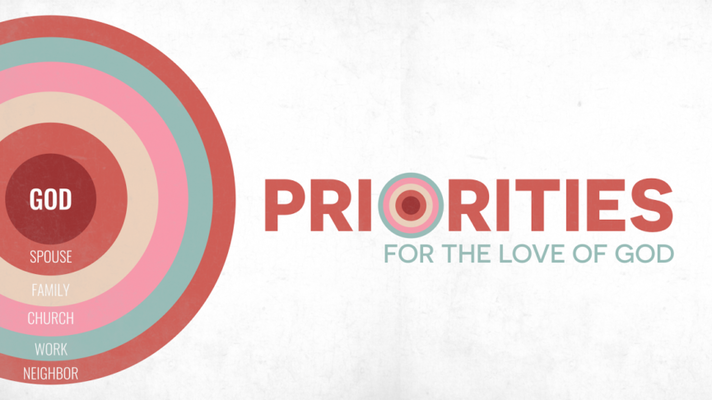 Honor the Lord with your wealth and with the firstfruits of all your produce; then your barns will be filled with plenty, and your vats will be bursting with wine. Proverbs 3:9-10 Money is important to God. That's because the way you handle it shows your heart's affection for God. Scripture makes it clear that propriety in the purse is a priority. For instance,
To be sure, the sheer amount of teaching dedicated to this one topic can't be squeezed into this email. But take note of the following priorities for the purse: 1. Give to God and be as Generous as Possible: The OT tithe was the "first fruits" of the crop. The Israelites were to give to God first, recognizing that all was His, His kingdom was first, and their livelihood was dependent upon Him. (Mal. 3:8f; Lev. 27:30). It was their way of showing that God was first in their lives. In similar fashion the NT tells us to dedicate a portion of our earnings to the work of the ministry (2 Cor. 16:2). As we make our budget, we must likewise put the glory and honor of God first in our spending habits. 2. Live within your means: (i.e. be content) What do you do with the rest of your money? The answer is simple: don't squander it on wasteful living. You must be responsible to buy only what you can afford, demonstrate thrift, and limit your pleasures. If your income is slim, you may need to cut out restaurants and eat a lot of rice & peanut butter. Your car may have to be traded in for a bike. Whatever measures you take, you are seeking to say to God: "I love you more than the things of this world and I will be happy with what you give me." This is the glory of a monthly budget. It helps you watch where each penny goes and stay accountable to God. Need help with a budget? Check out the Every Dollar App too. 3. Thrift: It is interesting that after multiplying the few loaves of bread to feed a couple thousand people, the disciples picked up the leftovers. Even though the Son of God could make bread appear out of thin air, that was no excuse to be wasteful. God wants us to be cognizant about what we have and thrifty in how we use it, even if we have in abundance. Being a good steward means taking care of the all of the God given gifts in our possession, not wasting a single bit. 4. Save for the future: Proverbs 30:25 tells us about ants that gather and save for the winter. They have a forward thinking life and not a mind for the pleasures of the present. That little bug is a sermon on how God wants us to be laying up what we can for the future. We shouldn't leave retirement to "faith" or blindly believe that "God will take care of me." True faith will plan now and take the proper steps to guarantee some stability for the coming "winter." 5. Ditch the Debt: Scripture tells us that the debtor is slave to the lender (Proverbs 22:7). Your life is essentially owned by those who hold the rights to your wallet. More than that, debt sucks away your income by means of interest payments. It is usually not financially wise to pull out a car loan, rack up credit cards, or become encumbered with student loans. You pay more in the long run. The biblical method is to save now, buy later: Hope deferred makes the heart sick, but a longing fulfilled is a tree of life. (Proverbs 13:12) This article first appeared in the Hopewell Weekly. Subscribe to get updates, teachings, and announcements delivered to your inbox.
0 Comments
Your comment will be posted after it is approved.
Leave a Reply. |
HOPEWELL CHURCHA Reformed and family integrated Church in Ashland, Ohio. Come & Worship
Sunday Mornings
@ 10:30 am LOCATION 1023 Elm St Ashland, OH 44805 Categories
All
|
 RSS Feed
RSS Feed